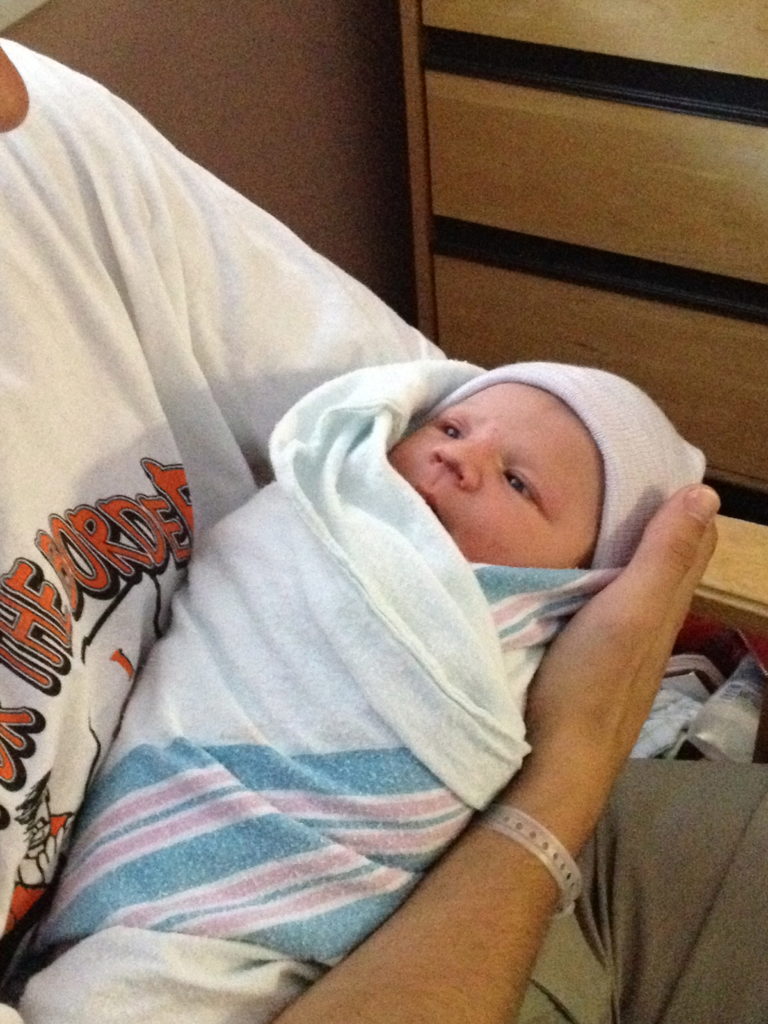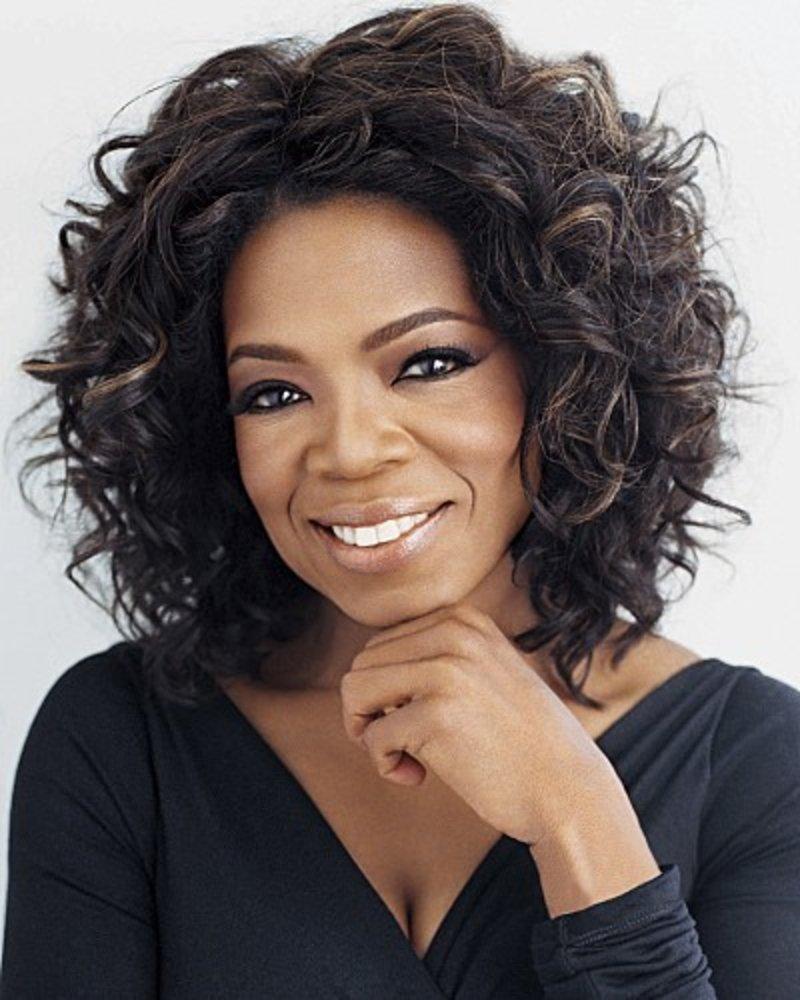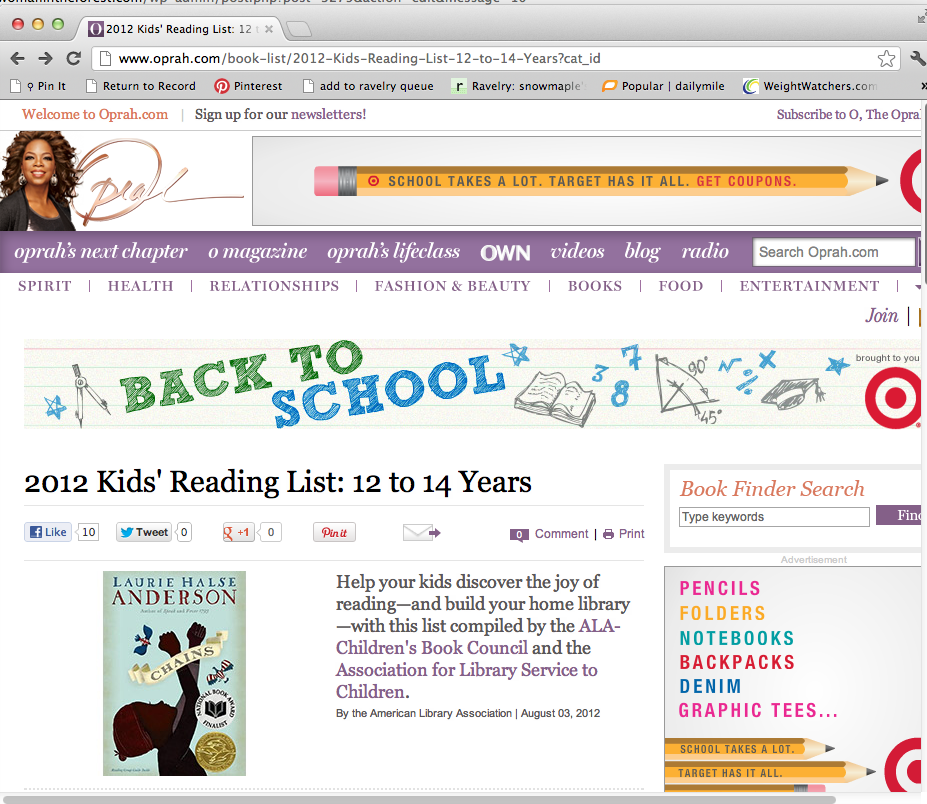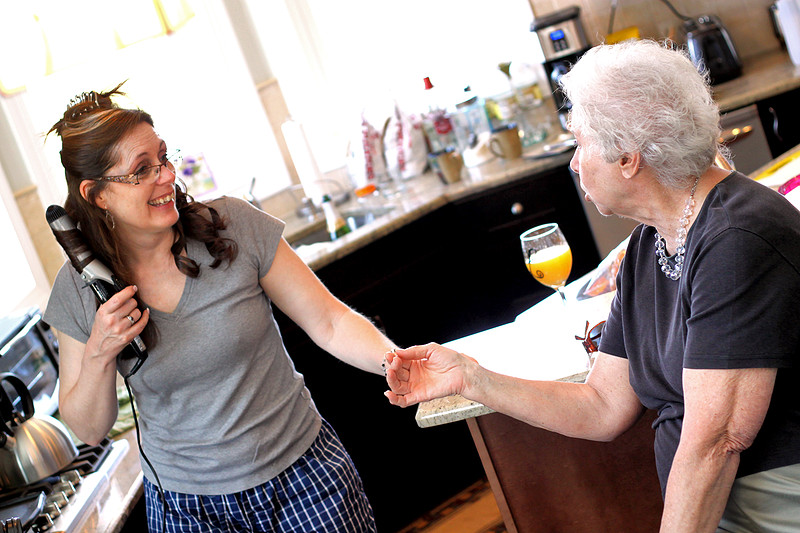All over America, college is getting under way.
(Note: this could be happening in other countries, too, but I don’t want to make assumptions about the collegiate calendar in places I’ve never been to, and if I stop writing to research this, I will be sucked into that swamp we call the Internet and won’t emerge for hours.)
So. USA. College.
This means that kids will start attending some creative writing classes. And a few kids and adults will start in on their MFA (Masters of Fine Arts) Writing program.
This worries me.
I divide the Academic Creative Writing Experience into two columns.
Column A I know a number of people who had wonderful creative writing professors who created a safe, stimulating atmosphere that fostered creativity and led to growth. I know people who graduated with an MFA in Creative Writing and then went on to publish successful books. So far, nothing to worry about, right?
Column B I also know people who stopped writing forever because their college creative writing professor was a bitter, unpublished writer who got his kicks out of making young writers cry. I have friends and fans who are tens of thousands of dollars in debt for their Creative Writing MFA, and who have not been able to land an agent, much less be offered a publishing contract.
I know way more people in Column B than in Column A.
Please do not take this as a personal attack. If you want to get a degree in creative writing, go for it. Have fun. Enjoy the gift of time and focus that academia offers. Write and dream. But I hope you enter these programs with your eyes open and your goals clear.
Publishers don’t care how many creative writing classes you’ve taken or what your degree is in.* All they care about is the quality of your work. If you can find professors and programs that will help you develop your writing craft, then it might be a good investment of your time and money.
Creative writing classes rarely, if ever, teach their students about the publishing business and the financial realities of being a full-time writer. (That’s why people are so stunned when I write posts like this one.) I’ve had a couple of heart-breaking conversations with writers who are drowning in debt because they had no clue how hard it is to make a living as a writer and they assumed that an MFA from a prestigious university would be their ticket to their dream career.
(John Scalzi has written a couple hard-hitting pieces on this and other weaknesses of MFA writing programs. Before you go into debt to get one of these degrees, I suggest you read what he has to say.)
If you want to be an engineer, you study for a degree in engineering. If you want to be a nurse, you go to nursing school. This equation, degree=career, is extremely fuzzy when it comes to the arts. Not just fuzzy. Swathed in yards of dun-colored cloth woven from dust bunnies, dog hair, and belly button lint. Just ask the theater majors wagging signs outside of a pizza shop.
Again – I’m not judging. It’s your life. Do whatever the hell you want with it. But be informed. Be a skeptical consumer before you plunk down hard-earned cash (or go into debt) for that degree. Know exactly what you are buying and take the time to calculate the true cost.
What do you think?
*For the record, I have an A.A. Liberal Arts degree from Onondaga Community College in Syracuse, NY and a B.S.L.L. (Bachelor of Science in Languages and Linguistics) from Georgetown University, Washington DC. Number of creative writing classes taken? None.
Today’s Quote
“All attempts at gaining literary polish must begin with judicious reading, and the learner must never cease to hold this phase uppermost. In many cases, the usage of good authors will be found a more effective guide than any amount of precept. A page of [Joseph Addison] or of [Washington Irving] will teach more of style than a whole manual of rules, whilst a story of [Edgar Allan Poe]‘s will impress upon the mind a more vivid notion of powerful and correct description and narration than will ten dry chapters of a bulky textbook. Let every student read unceasingly the best writers.”
Today’s prompt: Start with this opening line: “I had never jumped out of a window before, but…” Don’t stop writing for fifteen minutes. Don’t think, don’t worry, don’t edit, don’t plot. Just keep the pen moving, or your fingers tapping the keys. Stand back and let it flow.
Scribble… scribble… scribble…







